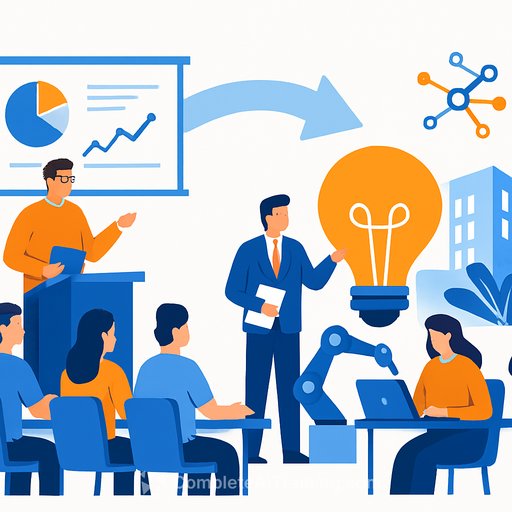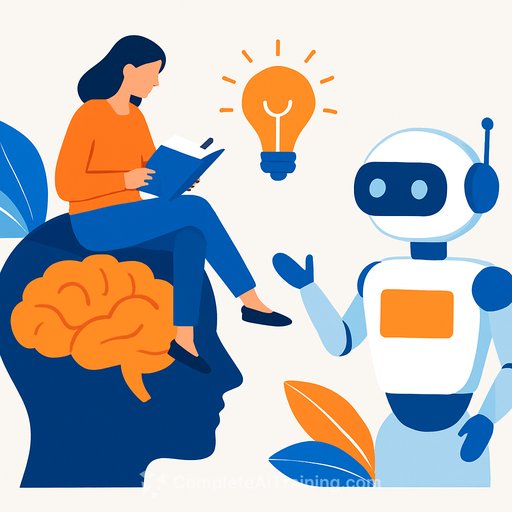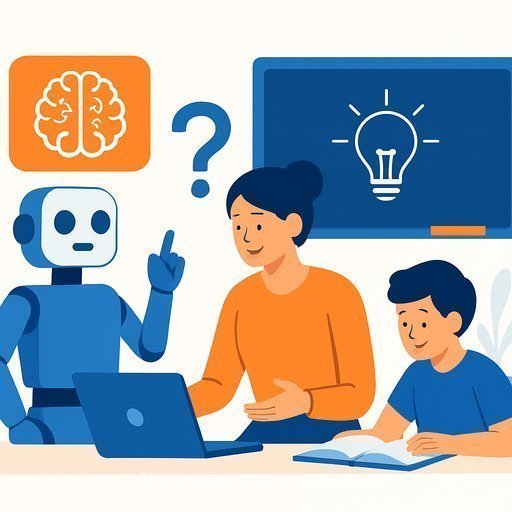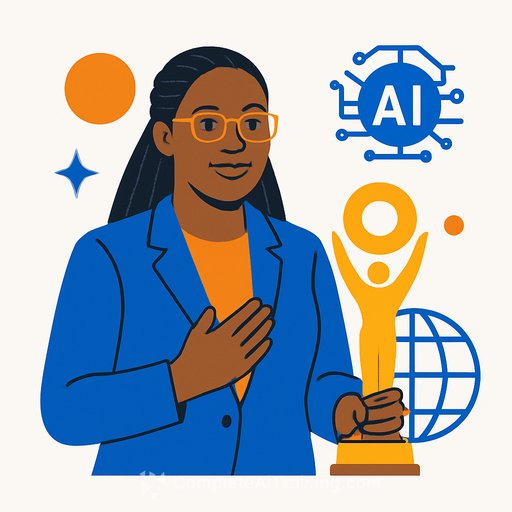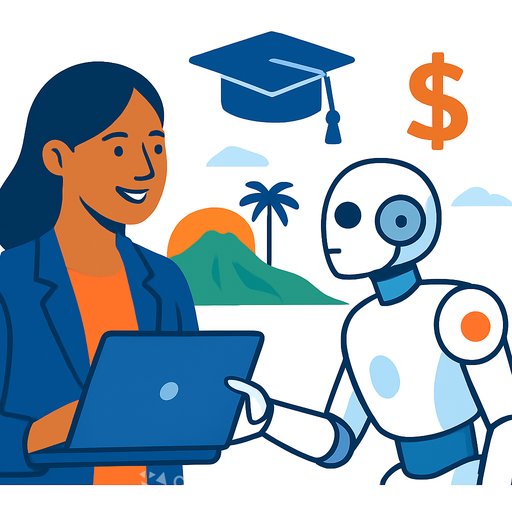Rethinking universities for Industry 5.0: where humans and AI co-create the future
Industry 5.0 isn't about more automation. It's about people setting direction while digital agents and AI extend our reach.
For higher education, that means a hard shift: from content delivery to value creation. From teaching to building. From exams to outcomes.
From Industry 4.0 to 5.0: what's different
- Human-AI collaboration: technology augments people instead of replacing them.
- Decentralised decisions: teams act fast with data and local context.
- Sustainability and social responsibility as core design constraints.
- Mass customisation: products, services, and learning built around the individual.
What this means for higher education
Employers need graduates who can think, build, and adapt with AI. Most programmes still optimise for knowledge recall and seat time.
Research and global labour reports point to the same skills gap: analytical and creative thinking, AI and data literacy, leadership, and a strong bias for lifelong learning. See the World Economic Forum's Future of Jobs analysis for the demand signal most universities feel every intake cycle.
World Economic Forum: Future of Jobs Report
Curriculum upgrade: from rigid to responsive
- Lifelong learning: stackable micro-credentials, short cycles, easy re-entry for alumni.
- Transdisciplinary tracks: blend engineering, data, design, ethics, and business.
- Human-centric design and sustainability as default lenses for every project.
- Hands-on data practice and collaboration with intelligent agents in every semester.
From lectures to real work
Shift the centre of gravity to projects tied to live industry problems. Give students constraints, customers, and deadlines.
- Project-based courses with external partners and clear deliverables.
- Co-ops, apprenticeships, and funded capstones with measurable impact.
- Innovation hubs, hackathons, and co-creation studios that run year-round.
- Startup support: mentorship, seed grants, and IP policies that don't block founders.
AI literacy that goes beyond buzzwords
- Agent workflows: prompt design, tool use, evaluation, and human-in-the-loop control.
- Data practice: collection, cleaning, privacy, security, and bias mitigation.
- Ethics: accountability, transparency, and acceptable risk in deployed systems.
- Assessment: grade the process (problem framing, iteration) and the product (utility, reliability).
Faculty development that sticks
- Release time and incentives for course redesign with AI and industry input.
- Team-teaching across departments; practitioners as adjuncts and critics.
- Communities of practice to share assignments, rubrics, and toolkits.
- Annual refresh cycles: retire stale modules, add what the market proves useful.
Infrastructure to make it real
- Studios and sandboxes for data, robotics, and agent testing with safe guardrails.
- Open datasets and model access with clear governance and audit trails.
- Credentialing system for micro-credits that count toward degrees.
- Flexible timetables that support projects, fieldwork, and part-time upskilling.
Need curated learning paths for staff and students? See these AI course lists for fast reskilling options.
Partnerships and policy
Co-build with employers: shared labs, co-funded chairs, and multi-year problem statements that feed capstones and research.
National strategies can accelerate the shift. The UAE's plan to embed practical skills in higher education is a useful example of how policy can push institutions and industry to work as one system.
UAE National Strategy for Higher Education 2030
Metrics that matter
- Graduate outcomes: time-to-job, roles in AI-enabled teams, salary growth.
- Project impact: deployed solutions, sustainability gains, user satisfaction.
- New ventures: student and faculty startups, follow-on funding.
- Industry integration: co-authored outputs, joint IP, repeat partner engagements.
- Upskilling: enrolment and completion of micro-credentials by students and staff.
Quick wins you can start this semester
- Convert one core course into a project studio with an external brief.
- Add a required AI and data module to every first-year programme.
- Stand up a faculty learning sprint on agent-based workflows and assessment.
- Offer a micro-credential that stacks into degree credit for working adults.
- Host a 48-hour co-creation sprint with three local employers and publish outcomes.
The opportunity
Industry 5.0 asks universities to do what they were built for: develop people who can think clearly, work with new tools, and build solutions that serve society.
Make the curriculum flexible, the learning applied, and the partnerships real. Graduates win. Employers win. Your institution stays relevant-by design.
Your membership also unlocks:

